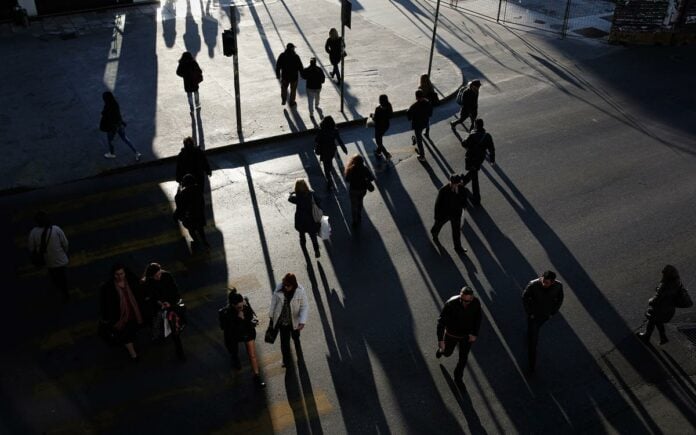By T. Tsiros
[email protected]
The crisis years in Greece have exacerbated long-term problems in the country, such as a demographic decline, while negatively – and one would expected – affecting living standards.
According to updated figures released last week by the independent statistics authority (EL.STAT), increasingly negative phenomena over past decades worsened with the unprecedented – by post-war standards – and unabated economic crisis since 2010. The worrying trends include an aging population, an increase in the percentage of elderly facing a serious health problem, a significant decrease in the already low birthrate among the native-born population, a much higher deaths-to-birth ratio every year and an increase in child poverty levels.
Based on EL.STAT’s figures, the number of marriages, on an annual basis, are also dropping, with civil ceremonies now the majority, instead of religious ceremonies.The latter are judged as much costlier and necessitating more preparation and organization.
Women in Greece are also apparently waiting longer before deciding on having children, and also opting for fewer children, with the overall number of births failing to reach the point of a “generational renewal”, as EL.STAT states.
While the demographic challenges are pre-existing, the crisis years severely worsened the situation, with one very visible problem being the viability of Greece’s social security system, based on the current and projected number of employed in relation to pensioners, as well as the ratio of contributions to benefits.
In terms of specific numbers, EL.STAT’s figures showed that the aging index in the country went from 119.6 in 2004 to 130.7 in 2010 and reached 145.5 in 2015. The index measures the ratio between the population over the age of 65 with the percentage of the population under the age of 14.
t the same time, the number of non-active dependents per household has increased, comparatively, with the index in 2010 at 51, only to reach 55.2 in 2015.
On the positive side, the average number of years a person over the age of 65 lives in Greece increased from 17.3 in 2005 to 18.8 in 2014. Conversely, life expectancy after the age of 65 accompanied by good health fell by 9.7 years to 7.7 years.
As previously noted, women in Greece are becoming mothers at an older age, with the average age at the first birth going from 29.7 in 2004 to 30.4 in 2010 and now reaching 31.3.
EL.STAT said recorded births in 2009 reached 117,933, falling to 114,766 in 2010, only to decline to the 91,000-92,000 level in the subsequent crisis years. The figure for 2016 was 92,898 births in the country.
In 2011, deaths exceeded births in the country by more than 4,600; in 2012 there were more than 16,000 deaths compared to births, with 2015 – the annus horribilis of the crisis years — marking the all-time peace-time record: deaths surpassed births by 29,365; 25,894 in 2016.














